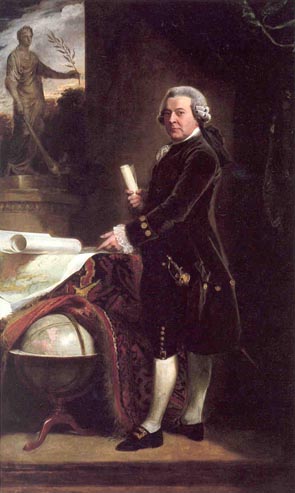 I asked a few days ago, What was the Revolution About? Conservative, Radical, or maybe neither? This was during my viewing of “John Adams” the HBO mini-series which I thoroughly enjoyed.
I asked a few days ago, What was the Revolution About? Conservative, Radical, or maybe neither? This was during my viewing of “John Adams” the HBO mini-series which I thoroughly enjoyed.
John Adams wrote after the Declaration (on July 2nd):
Time has been given for the whole People, maturely to consider the great Question of Independence and to ripen their judgments, dissipate their Fears, and allure their Hopes, by discussing it in News Papers and Pamphletts, by debating it, in Assemblies, Conventions, Committees of Safety and Inspection, in Town and County Meetings, as well as in private Conversations, so that the whole People in every Colony of the 13, have now adopted it, as their own Act. — This will cement the Union, and avoid those Heats and perhaps Convulsions which might have been occasioned, by such a Declaration Six Months ago.
What he was describing is Democracy, though of course no one would have spoken of Democracy at that time as its connotation was equal to that of “anarchy.”
The transformation within Adams himself, along with his countrymen, was seen as radical in his eyes. So convinced was Adams in the cause that he finished his letter to Abigail with the following: “I can see that the End is more than worth all the Means. And that Posterity will tryumph in that Days Transaction, even altho We should rue it, which I trust in God We shall not.” (Letter from John Adams to Abigail Adams, 3 July 1776)
This was the second of two letters he excitedly wrote. The first was an announcement of the news, “Yesterday the greatest Question was decided, which ever was debated in America, and a greater perhaps, never was or will be decided among Men.”
But his excitement would soon take on a more somber tone with the realization of what they had really done.
 The manner with which Adams tells Abigail of the news strikes me as very ideological. Those closest (and Adams was as close to the pulse of the Revolution as anyone by 1776) to the events seemed to have expressed the excitement that only a great event can produce, indeed. An almost magical affair that surprised and uplifted, though it was difficult and much drawn out.
The manner with which Adams tells Abigail of the news strikes me as very ideological. Those closest (and Adams was as close to the pulse of the Revolution as anyone by 1776) to the events seemed to have expressed the excitement that only a great event can produce, indeed. An almost magical affair that surprised and uplifted, though it was difficult and much drawn out.
Though the process that took place within the 13 colonies seemed delayed to Adams, the event as a whole shocked him, “I am surprized at the Suddenness, as well as Greatness of this Revolution.”
The Revolution was about “the People,” though even today debate often centers squarely on what this implied, or who it was applied to. Wherever that debate leads us, it was still the Revolution, and it meant that “The People will have unbounded Power.”
But was this a good thing he contemplated (once again, Democracy had a different meanig at this time) as “the People are extreamly addicted to Corruption and Venality, as well as the Great,” admitted Adams. When the choice was between anarchy or tyranny, tyranny always prevailed as it brought some measure of security and order. Thus, the Revolution meant entering dangerous waters.
The transformation within him and his countrymen was in their “hearts and minds,” proclaimed Adams. The sudden shift in power and control was dramatic, dynamic, and extremely dangergous, and every single representative in Philadelphia knew it.
To call the Revolution a game between only elites who controlled the ball and came home with all the runs, at this stage in 1776, seems a bit disingenuous.
So this probably means we have to look at American after 1787?